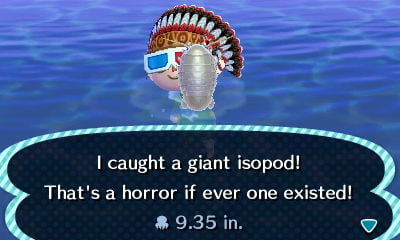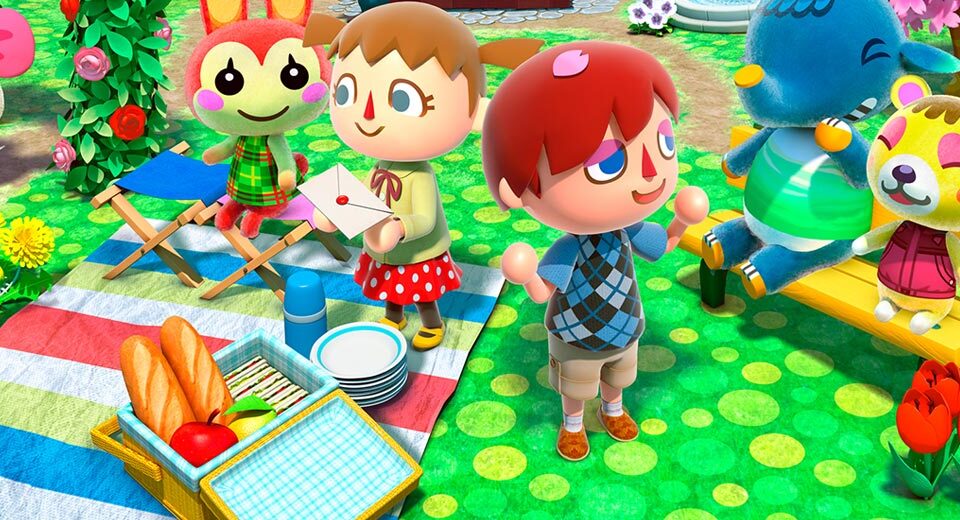At the 2014 Game Developers Conference, Nintendo EAD’s Katsuya Eguchi and Aya Kyogoku revealed how a grassroots rethink of the franchise’s conventions reinvigorated Animal Crossing.
Eguchi has been with Nintendo since the mind 1980s and has worked on the Animal Crossing series since the Nintendo 64 original. This was his second GDC presentation, having previously discussed Animal Crossing: Wild World in 2007. Kyogoku has worked at Nintendo since 2003. She previously worked on the Wii’s Animal Crossing: City Folk and was script writer on the Legend of Zelda titles; Four Swords and Twilight Princess. Kyogoku was game designer on Animal Crossing: New Leaf.
During the presentation – entitled How to turn a New Leaf in Animal Crossing – Eguchi and Kyogoku displayed refreshing honesty regarding the fortunes of the franchise. To begin with they focused on the widespread disappointment that greeted the series’ previous entry, Animal Crossing: City Folk which, despite the huge Wii install-base, was outsold by its DS predecessor ten to one
“With Animal Crossing: City Folk, it was clear the series had challenges we needed to overcome,” said Kyogoku.
Recognising that the game had failed to repeat success of the DS’s Wild World, Nintendo took a close look at the possible reasons. Was it franchise fatigue? Or perhaps a lack of clear challenge?

Nintendo’s research suggested that players felt isolated, despite the game’s online connectivity. In addition, the global release schedule meant that a lack of unique regional events appeared to make the game less desirable. In retrospect, Eguchi concedes that Nintendo played it too safe and didn’t innovate enough. To ensure that Animal Crossing: New Leaf did not receive the same reception there had to be changes in EAD’s approach.
“It was time to rethink conventions.” said Kyogoku.
Nintendo EAD defined what made the Animal Crossing franchise unique and distilled it into the following statement:
“Animal Crossing is a communication tool.”
EAD’s aim was that the player should always feel the “presence of others”. Animal Crossing’s secret sauce is that it harmonises with the real world and with real relationships, creating opportunities to communicate online or in real life.
Kyogoku explained how this feeling of harmony was transposed to the game’s development. It was a relaxed process that fostered a sense of communication and community within the team. This resulted in team parties and bake-offs, which lead her to proclaim that Animal Crossing was a good way to reduce workplace stress.
“If any of you are experiencing stress on your teams, I would really be happy if you were to share Animal Crossing: New Leaf with your teams as well.” Kyogoku said.

EAD went to great lengths to ensure that the game used as many communication features as possible on the 3DS. These included online play, screenshot sharing, random matching in mini-games, sharable QR codes, and the exchange of house and village data via the internet and Street Pass. The intention was that Animal Crossing: New Leaf would have a level of permanence in the life of its players. This extended beyond the game, with Mayoral assistant Isabelle having a Twitter account in seven languages, each with thousands of followers.
To combat the problem of fatigue, EAD created an ‘Internal Project Development Website’ where the team could share opinions and ideas on all aspects of the game. Everyone was encouraged to contribute and not to be scared of change.
“Everyone on the team could share characters, furniture, clothing and other ideas as we progressed through development,” Kyogoku said. “We were able to leverage our diverse team, which couldn’t be possible if one person was making all the decisions.”
Eguchi also explained how development was bound by three rules:
- Clearly identify the essential seed of the franchise
- Share those seeds with the development team
- Don’t be afraid of change, and spread seeds based on timing and hardware capabilities
This approach proved that the Animal Crossing franchise could not only to evolve itself, but also its platform. So far the game has sold in the region of 7.3 million copies worldwide and has helped push 3DS hardware sales to more than 42.7 million units.






